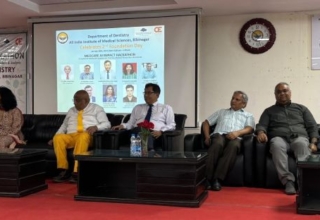
A white paper published by FICCI ARISE pushes for urgent and bold reforms, including unleashing the private sector’s potential in improving the country’s learning outcomes
As against any major country across the world where the percentage of students attending unaided independent schools (private schools) barely reaches the double digit, as per available data in India nearly 50 per cent of children study in private schools. This impressive standing would automatically elevate these schools to the position of an important stakeholder in matters of school education and regulations, but wait, that is not the case. Despite being on rising popularity curve for decades now as preferred schools by many, the role and aspirations of private schools has been undervalued in legislative and policy environments. These schools have to negotiate a plethora of laws and regulations to which much of their time is spend on managing regulatory risk instead of improving efficiency and quality to K12 education.
Now, a white paper titled, ‘LIBERALIZATION of India’s Private Schools: How might India achieve quality education for all children?’ authored by Vardan Kabra (Co-founder Fountainhead School, Surat) and Anupam Gupta, CA for FICCI ARISE, has advocated radical reforms under liberalization in country’s school regulations to what it calls ‘a necessary and desperate step to ensure access to quality education for all as public education has failed to deliver in last 75 years.” The exponential growth of private schools in the country should be a recipe for making them focal point of ushering in structural reforms to raise both quality of education as well as investment required for school education, the authors argue.
The 143-page paper, a compendium of expert voices and published reports, calls for allowing schools to operate for-profit by law. “Allowing complete autonomy to schools subject to the formalizing norms should be accompanied by change of regulations to allow for various funding and raising capital models of schools.” Saying by correcting incentives – for investors to buy into high quality education at scale and by giving autonomy to entrepreneurs and school leaders to innovate, will change the face of education and also allow country to truly translate into human resources capital of the world.
The paper says that Private schools need autonomy to be able to deliver quality which includes control over their fees as they are completely self-financed. To ensure that schools have genuine autonomy, the government (central and states) must repeal all acts and laws that control fees and replace it by a rule that protects exploitation of existing parents without hurting schools. “Private investment of a massive kind can’t be expected unless investors have the possibility to get legal returns on their investment. With the lack of investments, investors and entrepreneurs often called the education sector (in schools), a “cottage industry, will not get into this space.”
Saying the rise of private schools is an important, and often, unheard story about our education system, the report says that the growth in the private sector has actually been powered by a wave of low and middle-income families seeking better education for their children and 70% of the students study in private schools that charge less than INR 1000 per month. “Despite all the regulations and the philanthropic mandate, private schooling is nearly at a $100 bn size, having grown at about 15% CAGR over the last decade. Given the size of this market, rationalizing regulations and removing the philanthropic mandate could push the growth up to 25% CAGR, pushing the sector to nearly $200 bn by 2025.
As per UNDP estimates, the total financial requirement for India to reach SDG 4 by 2030 averages $173 billion per year, far exceeding the current government budget of $76.4 billion a year for education. It’s obvious that the government won’t be able to shore up investments to the required levels and would need significant private participation. “With the current regulatory structure and obsession with keeping it ostensibly clean through not for profit mechanisms, we’re ensuring our students are deprived of quality education. If we need investments, we need to incentivise investors. How can we expect institutions to invest Rs 100 crore in setting up schools and not expect a return on their capital?” mentions the report.
The paper argues that it is necessary to alter our policy attitude towards private schools at two levels – to seriously implement effective standard setting through formalization, and grant autonomy through liberalisation. The analysis and recommendations of this report can be debated and argued against, mostly at an ideological level, but also from other perspectives. However, what’s clear is that India’s future is at stake. The demographic dividend that India hopes to achieve, or a move towards a high income country is just not possible for India without all its children getting a good education. At this point of time, the vast majority of our children are not learning anything socially or economically meaningful in the schools that they go to. The COVID-19 pandemic has further exacerbated the learning gap. And the 21st century requires not just literacy but much higher quality education and skills than being able to read, write or add alone. Yet our failure to deliver the basics, points to serious and complex problems in our system.
Rationalizing Right to Education Act (RTE), Reforming private sector schools by Compulsory registration of schools and accreditation that meets a set of disclosure norms and safety standards (replacing input based norms as part of the RTE and other acts), Education vouchers for individual students instead of RTE 12(1)(c), Increasing information available to parents by standardized testing at at least the key grades till Grade 8, Publishing the scores for schools, Restructure regulatory bodies that oversee the education sector to eliminate conflict of interest are some of the changes recommended in the paper.
Manit Jain, Chairman, FICCI ARISE said, “The time is right to introduce concrete structural reforms including decontrolling the functions of the private school system in the country. The private education sector, which can educate far more on a lesser budget than the public education sector, is being stifled by unnecessary layers of regulations. It is a reasonable demand to urge the Government to incentivize private players for it alone cannot achieve the target to reach SDG4 by 2030.”










